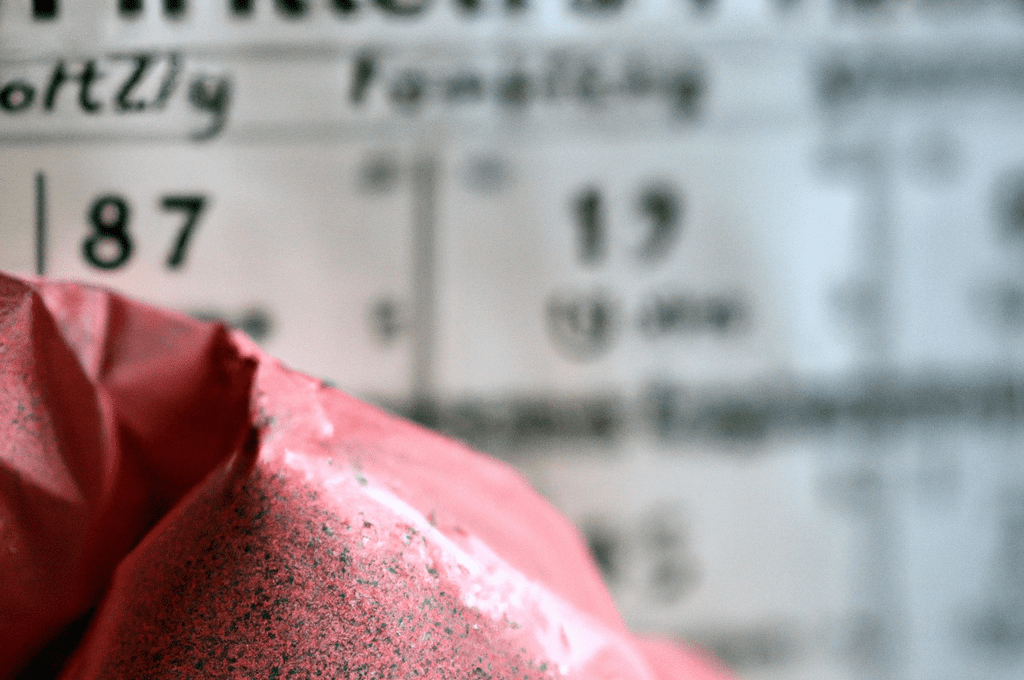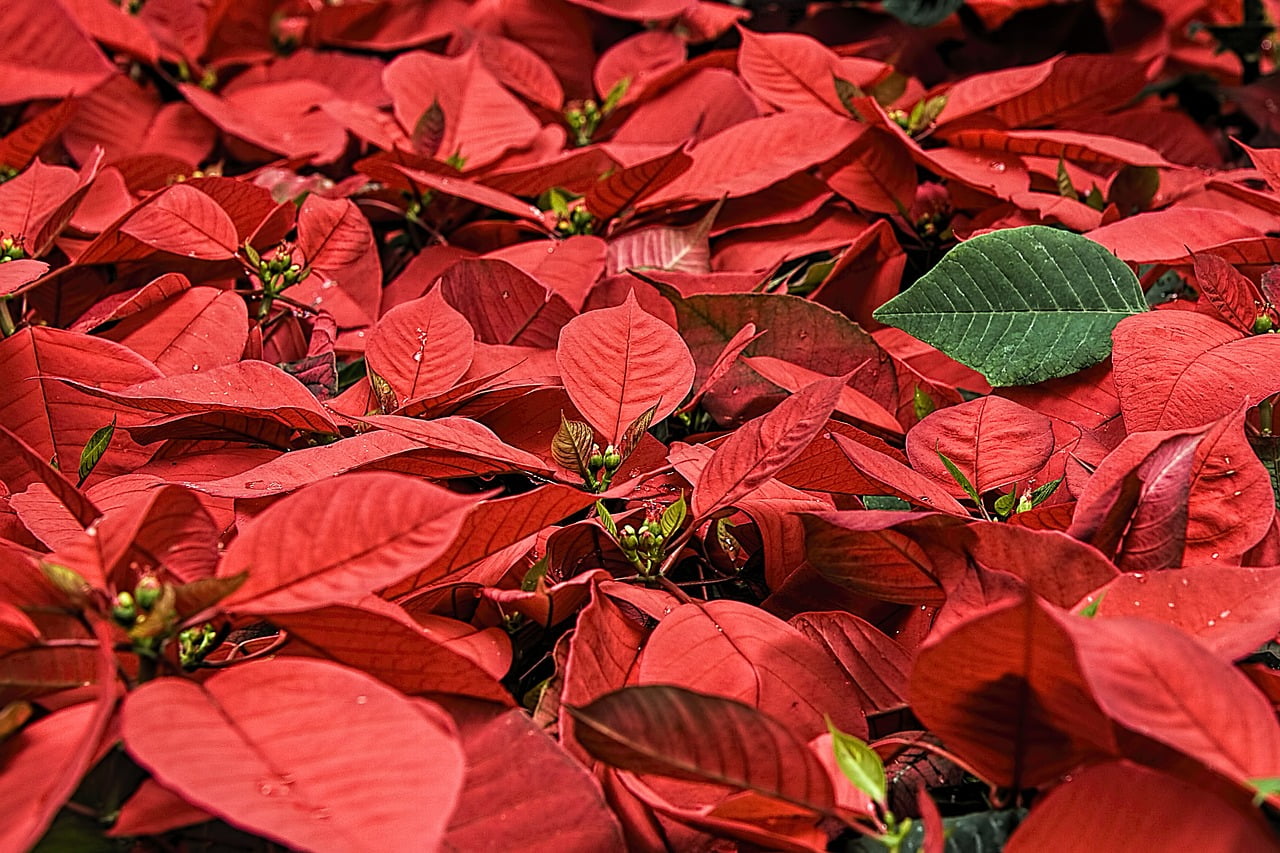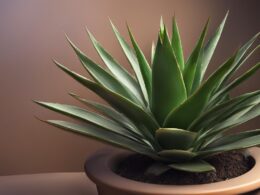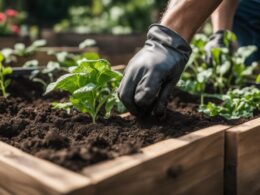Are you a gardener who wants to ensure your plants receive the best nutrition possible? One important aspect to consider is the shelf life of your fertilizer. Fertilizer is a crucial component for healthy plant growth, but like any other product, it can go bad over time.
Understanding the expiration dates and proper storage techniques for your fertilizer can help you maximize its effectiveness and keep your plants thriving. In this article, you will learn about the different types of fertilizer and their shelf lives, how long fertilizer lasts in soil, signs of expiration, and the proper storage techniques to ensure your fertilizer remains effective.
By taking the time to properly store and use your fertilizer, you can ensure that your plants receive the nutrients they need to grow strong and healthy. So, let’s dive into the world of fertilizer shelf life and learn how to keep your plants thriving for years to come!
Quick Summary
- The shelf life of fertilizer depends on the type and storage conditions, with liquid mineral fertilizer lasting up to 10 years, liquid organic fertilizer lasting 5-8 years, and dry granular and crystallized fertilizer lasting indefinitely.
- Fertilizer in soil has varying lifespans, with organic fertilizers taking longer to break down than synthetic, and synthetic liquid fertilizers lasting 1-2 weeks while granule synthetic fertilizers last 4-36 weeks in soil.
- Signs of bad fertilizer include changes in texture, odd smells, changes in color, infestation with bugs, and mold growth, with liquid organic fertilizers being more likely to go bad than synthetic.
- Proper storage of fertilizer is important, with suitable containers being zip-top baggies or airtight containers, and suitable locations being temperature and humidity-controlled garages, greenhouses, basements, or sheds. Mixing different fertilizers can cause dangerous chemical reactions, and fertilizer should be labeled with brand, type, and purchase date and kept away from paints, chemicals, or pesticides.
Types of Fertilizer
You’ll want to know about the different types of fertilizer, as they have varying shelf lives and effects on soil.
Organic fertilizers, for example, take longer to break down than synthetic fertilizers. While synthetic liquid fertilizers last only one to two weeks in soil, granule synthetic fertilizers can last for four to 36 weeks. Meanwhile, organic fertilizers have the added benefit of improving soil health and promoting microbial activity, leading to healthier plants in the long run.
When it comes to comparing liquid and granular fertilizers, there are a few key differences to consider. Liquid fertilizers are typically quicker acting, as they are absorbed by plants more easily than granular fertilizers. However, granular fertilizers have the advantage of being easier to apply and less prone to runoff.
Ultimately, the choice between liquid and granular fertilizers will depend on your specific needs and preferences.
Can Mold in Compost Affect the Shelf Life of Fertilizer?
Mold in compost explained: Mold in compost is a common occurrence caused by excessive moisture or inadequate aeration. While mold itself does not affect the shelf life of fertilizer directly, it indicates unfavorable conditions that can degrade the quality of compost. This highlights the importance of proper compost management to ensure optimal nutrient retention and prevent any potential negative effects on fertilizer quality.
Fertilizer in Soil
Organic fertilizers take longer to break down in soil compared to synthetic options, while synthetic liquid fertilizers only maintain their effectiveness for 1-2 weeks. Granular synthetic fertilizers, on the other hand, can last up to 36 weeks in soil.
When considering the type of fertilizer to use, it’s important to weigh the benefits of organic fertilizers, such as their ability to improve soil health and promote long-term plant growth, against the convenience and quick results of synthetic fertilizers. Synthetic fertilizers may provide a quick boost of nutrients, but they can also harm soil health and contribute to environmental problems, such as water pollution.
Organic fertilizers, on the other hand, are made from natural materials and can improve soil structure and fertility over time. Additionally, organic fertilizers are less likely to cause chemical imbalances in the soil and can help promote beneficial microbial activity. When choosing a fertilizer, it’s important to consider the specific needs of your plants and soil, as well as the long-term effects on the environment.
Proper Fertilizer Storage
To ensure your fertilizer remains effective, proper storage is crucial. Effective storage techniques include using suitable containers such as zip-top baggies or airtight containers, and labeling the container with the name brand, type, and purchase date.
Liquid fertilizers should be stored upright, while granular fertilizers should be sealed with little air. Mixing different fertilizers can cause a dangerous chemical reaction, so it’s best to store them separately.
Common mistakes in fertilizer storage include leaving it in outdoor storage bins or sheds without protection from heat, cold, or pests. Liquid fertilizer can freeze, altering its effectiveness. Additionally, avoid storing fertilizer near paints, chemicals, or pesticides.
To keep the fertilizer well-marked and out of reach of pets or kids, store it in a dry location away from sunlight and extreme temperature swings. Following these simple steps will ensure your fertilizer remains effective and safe for use.
Frequently Asked Questions
What are the potential dangers of mixing different types of fertilizers?
Mixing different types of fertilizers can lead to fertilizer toxicity and dangerous chemical reactions. Proper storage techniques include labeling containers, storing in a dry location, and avoiding mixing different fertilizers to ensure safe and effective use.
Can expired fertilizer cause harm to plants or the environment?
Expired fertilizer can harm plants and the environment due to decreased effectiveness and potential for toxic chemical buildup. Use caution with old fertilizer and dispose of properly to avoid environmental implications.
How often should fertilizer be applied to plants?
To ensure optimal plant growth, apply fertilizer at the recommended frequency of application, usually every 4-6 weeks. The optimal timing is during the plant’s active growing season. Check labels for specific instructions and avoid overapplication to prevent harm to plants and the environment.
Are there any natural alternatives to synthetic fertilizers?
Looking for safe, natural alternatives to synthetic fertilizers? Organic fertilizers, like compost and manure, provide nutrients to plants and improve soil health. You can also make homemade fertilizers using household items like coffee grounds and eggshells.
How can I determine the right type of fertilizer for my specific plants or soil type?
To determine the right fertilizer for your plants, get a soil analysis and consider your plant’s specific requirements. Choose a fertilizer with the correct balance of nutrients and apply according to instructions. This will ensure healthy growth and prevent over-fertilization.









